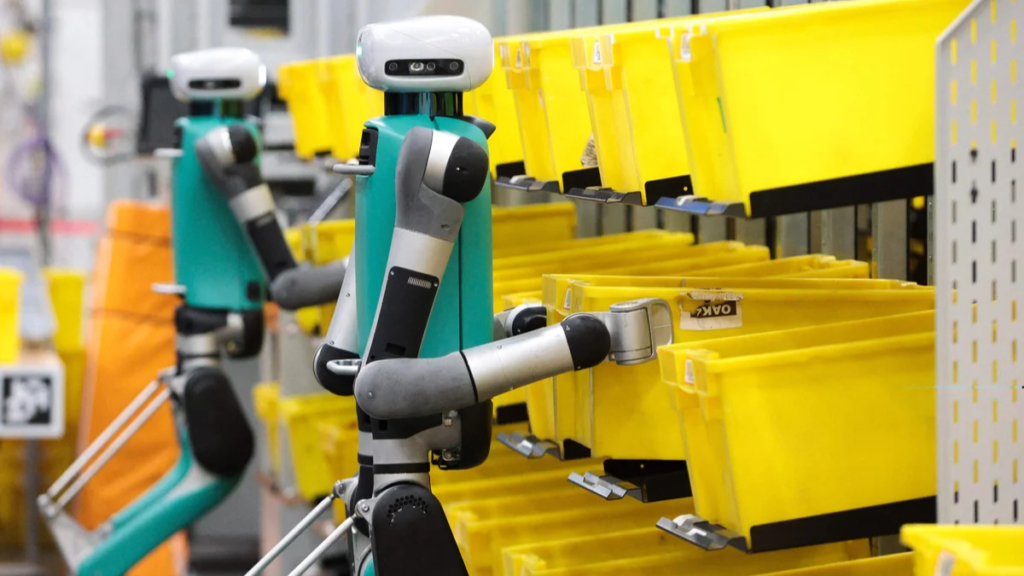Amazon has deployed its 1 millionth robot in its global fulfillment operations—a technological milestone that’s stirring as much controversy as celebration. While the move highlights Amazon’s dominance in warehouse automation, it has reignited public debate around the ethical and societal consequences of such sweeping automation.
With robots now involved in roughly three-quarters of Amazon’s deliveries, critics argue the company is accelerating job displacement. The launch of Amazon’s proprietary DeepFleet AI, which orchestrates robotic logistics with minimal human oversight, is seen by some as a sign of a “post-human” workforce strategy.
Employees and labor advocates express concerns that Amazon’s rapid adoption of robotics could marginalize human workers, especially those in lower-wage and less tech-skilled roles. While Amazon points to retraining programs, these have only reached a fraction of the global workforce. For many, the shift feels less like opportunity—and more like obsolescence.
Ethicists have also raised alarms about transparency. DeepFleet operates as a black-box system—making autonomous decisions on routing, timing, and staffing efficiency—without public accountability. As artificial intelligence plays a larger role in logistics, who governs the governors?
Furthermore, communities dependent on warehouse jobs may soon face economic ripple effects. If automation reduces labor demand, what becomes of the towns built around distribution centers? And as AI replaces not only manual labor but managerial oversight, questions arise about the long-term viability of human-centered employment in logistics at all.
In the public sphere, reactions are mixed. Tech enthusiasts hail the efficiency and innovation, while civil society groups warn of a “silent disruption”—where human workers are quietly sidelined in favor of machines and metrics.
Amazon’s 1 million robots may represent engineering excellence, but for many, they also represent a choice: efficiency or empathy—progress or people.
